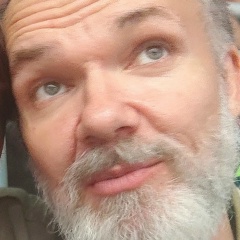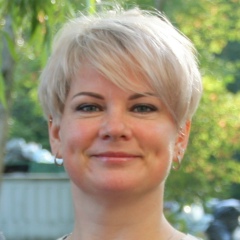#Прошлое нельзя изменить, а #будущее мы меняем каждый #день.
Из Притч царя Соломона:
"...праведник - на вечном основании" (10,25). "...корень же праведников - неподвижен" (12,3).
Это вечное и прочное основание #праведник ищет, находит, видит не где-нибудь, а именно в окружающей его действительности: "Ухо внимательное к учению жизни, пребывает между мудрыми" (15,31).Но, безусловно и непременно, пуститься на поиски такого основания праведника заставляет не только разум, но и #сердце: "Сердце разумного ищет знание, уста же глупых питаются глупостью" (15,14). "Сердце разумного приобретает знание, и ухо мудрых ищет знания" (18,15). "Коварное сердце не найдет добра..."(17,20).
Это вечное и прочное основание, которое присутствовало в этом мире "прежде бытия земли" (8,23), присутствует на земле и в каждом миге настоящего, во всех явлениях жизни: "на возвышенных местах, на дороге, на распутиях..." (8,2). И будет вечно существовать в будущем. То есть, коротко, в каждом миге бытия всегда сосуществуют элементы и прошлого, и настоящего, и будущего, неразрывно, как три поколения людей, связанные. А потому: "Благоразумный видит беду," - элементы будущего в настоящем - "и укрывается..." (27,12).
И именно от этого вечного и прочного основания начинается разумный, добрый и прямой путь: "Мудрость разумного - знание пути своего..." (14,8). Путь закона, справедливости, правоты: "Путь же беззаконных - как тьма, они не знают, обо что споткнутся" (4,19). Ведь любая беззаконность и несправедливость среди людей начинается с беззаконного и несправедливого отношения людей к самим себе. "Не хорошо душе без знания..." (29,2). "Кто приобретает разум, тот любит душу свою..." (19,8). И в конце этого пути отдельного человека - "Венец славы - седина, которая находится на пути правды" (16,31).
Все же пути, в начале, в основе которых лежит любое другое положение или просто только замыслы, желания, намерения и тому подобное, - пути всего лишь "кажущиеся" (16,25; 14,12). И все они ведут к такому состоянию общества, когда "...будут звать меня (мудрость - Авт.), и я не услышу, с утра будут искать, и не найдут меня" (1,28).
И остается только констатировать, что элементы такого будущего уже более чем глубого и широко прорастают в настоящем.
#Притчи #притча #Библия #Соломон #мудрость #andkatya
Из Притч царя Соломона:
"...праведник - на вечном основании" (10,25). "...корень же праведников - неподвижен" (12,3).
Это вечное и прочное основание #праведник ищет, находит, видит не где-нибудь, а именно в окружающей его действительности: "Ухо внимательное к учению жизни, пребывает между мудрыми" (15,31).Но, безусловно и непременно, пуститься на поиски такого основания праведника заставляет не только разум, но и #сердце: "Сердце разумного ищет знание, уста же глупых питаются глупостью" (15,14). "Сердце разумного приобретает знание, и ухо мудрых ищет знания" (18,15). "Коварное сердце не найдет добра..."(17,20).
Это вечное и прочное основание, которое присутствовало в этом мире "прежде бытия земли" (8,23), присутствует на земле и в каждом миге настоящего, во всех явлениях жизни: "на возвышенных местах, на дороге, на распутиях..." (8,2). И будет вечно существовать в будущем. То есть, коротко, в каждом миге бытия всегда сосуществуют элементы и прошлого, и настоящего, и будущего, неразрывно, как три поколения людей, связанные. А потому: "Благоразумный видит беду," - элементы будущего в настоящем - "и укрывается..." (27,12).
И именно от этого вечного и прочного основания начинается разумный, добрый и прямой путь: "Мудрость разумного - знание пути своего..." (14,8). Путь закона, справедливости, правоты: "Путь же беззаконных - как тьма, они не знают, обо что споткнутся" (4,19). Ведь любая беззаконность и несправедливость среди людей начинается с беззаконного и несправедливого отношения людей к самим себе. "Не хорошо душе без знания..." (29,2). "Кто приобретает разум, тот любит душу свою..." (19,8). И в конце этого пути отдельного человека - "Венец славы - седина, которая находится на пути правды" (16,31).
Все же пути, в начале, в основе которых лежит любое другое положение или просто только замыслы, желания, намерения и тому подобное, - пути всего лишь "кажущиеся" (16,25; 14,12). И все они ведут к такому состоянию общества, когда "...будут звать меня (мудрость - Авт.), и я не услышу, с утра будут искать, и не найдут меня" (1,28).
И остается только констатировать, что элементы такого будущего уже более чем глубого и широко прорастают в настоящем.
#Притчи #притча #Библия #Соломон #мудрость #andkatya
# The past cannot be changed, but # the future we change every # day.
From the Proverbs of King Solomon:
"... the righteous is on an eternal basis" (10.25). "... the root of the righteous is immobile" (12.3).
This eternal and solid foundation # the righteous man seeks, finds, sees not just anywhere, but precisely in the surrounding reality: "An ear attentive to the teaching of life, dwells among the wise" (15.31). such a foundation of a righteous man is compelled not only by reason, but also by the heart: "The heart of the rational seeks knowledge, but the mouth of the foolish feeds on folly" (15,14). "The heart of the intelligent acquires knowledge, and the ear of the wise seeks knowledge" (18,15). "An insidious heart will not find good ..." (17.20).
This eternal and solid foundation, which was present in this world "before the existence of the earth" (8.23), is present on earth and in every moment of the present, in all phenomena of life: "on elevated places, on the road, on the roads ..." (8.2). And it will exist forever in the future. That is, in short, in every moment of life, elements of the past, the present, and the future always coexist, inseparably, like three generations of people, connected. And therefore: "The prudent one sees trouble," - the elements of the future are in the present - "and hides ..." (27, 12).
And it is from this eternal and solid foundation that an intelligent, good and straight path begins: "The wisdom of the rational is the knowledge of his own way ..." (14.8). The path of law, justice, righteousness: "The path of the wicked is like darkness, they do not know what they will stumble over" (4.19). After all, any lawlessness and injustice among people begins with the lawless and unjust attitude of people towards themselves. "It is not good for the soul without knowledge ..." (29.2). "He who acquires reason loves his soul ..." (19.8). And at the end of this path of an individual person - "The crown of glory is the gray hair that is on the path of righteousness" (16.31).
All the same, the paths, at the beginning, which are based on any other position or simply only intentions, desires, intentions and the like, are only "apparent" paths (16.25; 14.12). And they all lead to such a state of society when "... they will call me (wisdom - Auth.), And I will not hear, in the morning they will search, and they will not find me" (1, 28).
And it only remains to state that the elements of such a future are already more than deep and are widely sprouting in the present.
# Proverbs # parable # Bible # Solomon # wisdom #andkatya
From the Proverbs of King Solomon:
"... the righteous is on an eternal basis" (10.25). "... the root of the righteous is immobile" (12.3).
This eternal and solid foundation # the righteous man seeks, finds, sees not just anywhere, but precisely in the surrounding reality: "An ear attentive to the teaching of life, dwells among the wise" (15.31). such a foundation of a righteous man is compelled not only by reason, but also by the heart: "The heart of the rational seeks knowledge, but the mouth of the foolish feeds on folly" (15,14). "The heart of the intelligent acquires knowledge, and the ear of the wise seeks knowledge" (18,15). "An insidious heart will not find good ..." (17.20).
This eternal and solid foundation, which was present in this world "before the existence of the earth" (8.23), is present on earth and in every moment of the present, in all phenomena of life: "on elevated places, on the road, on the roads ..." (8.2). And it will exist forever in the future. That is, in short, in every moment of life, elements of the past, the present, and the future always coexist, inseparably, like three generations of people, connected. And therefore: "The prudent one sees trouble," - the elements of the future are in the present - "and hides ..." (27, 12).
And it is from this eternal and solid foundation that an intelligent, good and straight path begins: "The wisdom of the rational is the knowledge of his own way ..." (14.8). The path of law, justice, righteousness: "The path of the wicked is like darkness, they do not know what they will stumble over" (4.19). After all, any lawlessness and injustice among people begins with the lawless and unjust attitude of people towards themselves. "It is not good for the soul without knowledge ..." (29.2). "He who acquires reason loves his soul ..." (19.8). And at the end of this path of an individual person - "The crown of glory is the gray hair that is on the path of righteousness" (16.31).
All the same, the paths, at the beginning, which are based on any other position or simply only intentions, desires, intentions and the like, are only "apparent" paths (16.25; 14.12). And they all lead to such a state of society when "... they will call me (wisdom - Auth.), And I will not hear, in the morning they will search, and they will not find me" (1, 28).
And it only remains to state that the elements of such a future are already more than deep and are widely sprouting in the present.
# Proverbs # parable # Bible # Solomon # wisdom #andkatya

У записи 8 лайков,
0 репостов.
0 репостов.
Эту запись оставил(а) на своей стене Катя Андреева


























